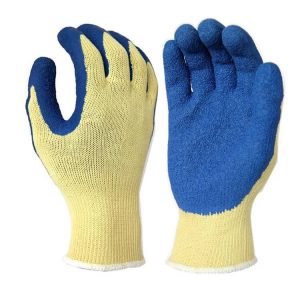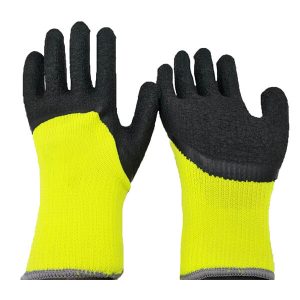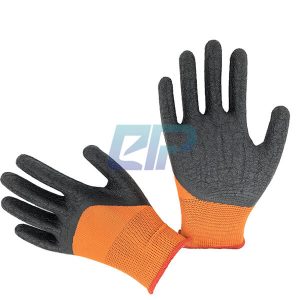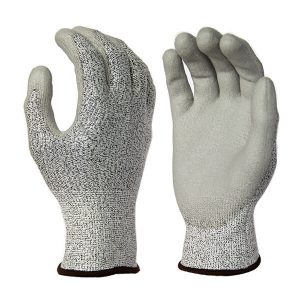In industrial production and daily life, you often need to use protective gloves to keep your hands safe. However, the use of protective gloves is not simple and requires attention to many details.
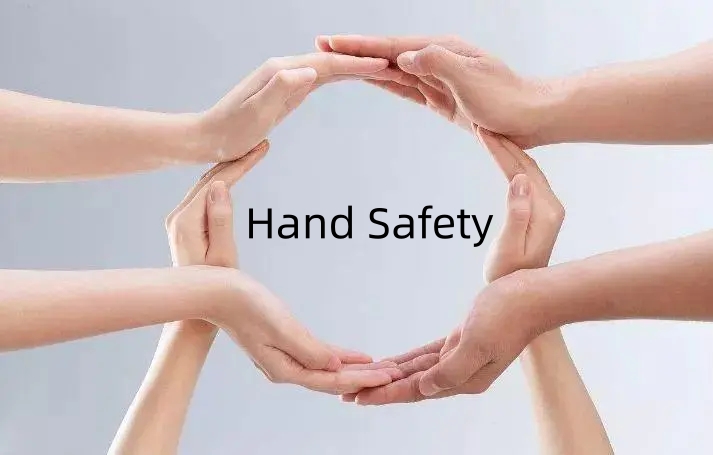
Pay Attention To The Following 10 Points When Using Protective Gloves
Click here to find out what others think: TOP 10 TIPS FOR HAND SAFETY comes to Ansell.
- Select protective gloves suitable for different workplaces according to the table above. The size of the gloves should be appropriate. If the gloves are too tight, restricting blood circulation, it is easy to cause fatigue and uncomfortable; if they are too loose, they are not flexible and easy to fall off.
- The selected protective gloves must have sufficient protection. In the environment where steel wire cut-resistant gloves are used, cut-resistant gloves made of synthetic yarn cannot be used. To ensure its protective function, gloves must be changed regularly. If the life span is exceeded, there is a risk of injury to the hands or skin.
- Check the protective gloves at any time for small holes or damaged or abraded places, especially the seams. Chemical-resistant gloves can be inspected using the inflation method.
- Pay attention to the use of gloves. If a pair of gloves is used in different places, the service life of the gloves may be greatly reduced.
- Pay attention to safety during use, do not throw contaminated gloves at will to avoid causing harm to others. Keep gloves not in use in a safe place.
- When removing gloves, pay attention to the correct method to prevent the harmful substances contaminated by the gloves from contacting the skin and clothes, causing secondary pollution.
- It is best not to share gloves with others because the inside of the gloves is a breeding ground for bacteria and microorganisms. Sharing gloves is likely to cause cross-infection.
- Wash your hands before wearing gloves. Wear gloves on clean (sterile) hands otherwise, bacteria can easily grow. After removing gloves, wash your hands and rub hand cream to replenish oil.
- Cover the wound before wearing gloves. The skin is a natural barrier against environmental damage and can prevent the entry of bacteria and chemicals.
- Do not ignore any skin erythema or itching, to prevent skin diseases such as dermatitis. If your hands appear dry, itchy or have air bubbles, consult a doctor in time.

When choosing protective gloves, what else to pay attention to?
When choosing protective gloves, not only understand the types of injuries that the hand may encounter (determine the required protective performance), but also choose the material of the glove according to your own needs and determine the size and comfort of the glove.
On the other hand, you also need to pay attention to the protective performance and durability, comfort and air permeability of gloves, whether they meet national and industry standards. Of course, different countries and industries have different standards and specifications for the selection and use of gloves, such as the EN388 standard in Europe and the ANSI Z87.1 standard in the United States. Compliance with these standards and specifications ensures compliance and safety of gloves.
European Standards For Protective Gloves
Tips from security experts:
Because of the diversity of chemicals encountered, preventing them from harm is a particularly complex issue;
Acids, disinfectants, hydrocarbons, solvents, oils, lipids, and acetates have different chemical characteristics, and the characteristics required to prevent damage from so many products are also different.
Therefore, there are no universal gloves. Each material of protective gloves has different characteristics, depending on the type of chemical that comes into contact with the protective gloves and has a special purpose. For more information, please consult a protection specialist.
Proper Selection Of Protective Gloves–(1) Hand Injury Types
Proper Selection Of Protective Gloves-(2)Different Material of gloves

